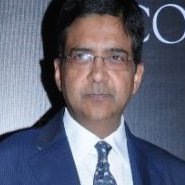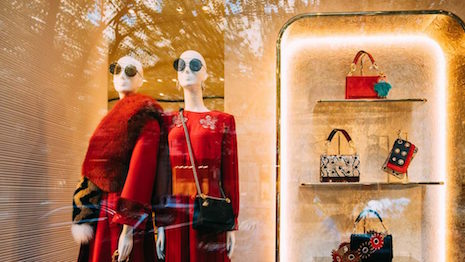By Abhay Gupta
The luxury business is usually associated with terms such as excessive consumerism, disposable incomes and guilty pleasures.
While people already identify and associate with the idea of sustainability, the luxury business is generally perceived to be apprehensive of the notion.
Not fur it
Mass movements such as “say no to animal testing” and anti-fur have time and time again reminded people of the perceived negative attributes of the luxury business.
However, if we closely look at the attributes of sustainable products, they share a close relationship with luxury goods: excellent craftsmanship, creativity, design, made from exceptional materials, great quality and focus on durability. These are common traits that are shared by both categories.
But things are changing.
With millennials as the core luxury demographic that most strongly associates with sustainability, luxury brands are stepping up their efforts in that area. India is the next geographic frontier.
Ethical mining, treatment of animals, organic raw materials and fair trade practices are just some of the ways with which luxury brands are promoting their sustainable products.
A recent Deeper Luxury WWF report highlighted "those [brands] that provide the greatest positive contribution to all affected by their creation and that identify their consumers as having the means and motivation to respect both people and planet".
Meet consumer expectations
The health impact of toxic chemical residues from textile, fashion, food and cosmetics are a major cause of concern with consumers. This is why consumers are willing to pay a premium on products that are not only safe, but are also environmentally responsible.
Some major brands are getting the message loud and clear. Kering, owner of luxury brands such as Gucci, Puma, Saint Laurent and Bottega Veneta have publicly launched their sustainability campaign for all their brands.
As part of its sustainability goals, Kering has realigned its policies, processes and products to be more responsible towards their impact on the planet, natural resources and climate change.
Circular economy
Being sustainability-oriented is no longer enough. Customers look forward to brands that are not only environmentally conscious, but also that give back to the community.
The founder of the sustainable luxury movement, Stella McCartney is a pioneer in the field. All Stella McCartney luxury products are entirely made of sustainably sourced raw materials. The company’s charity efforts are also central to its mission, partnering with many nonprofit organizations aimed at improving quality of life for communities around the world.
Another brand that is getting rave reviews in India for its sustainability-focused luxury fashion is Good Earth.
Good Earth’s fashion brand, Nicobar, has been synonymous with stylish sustainable luxury retail.
Anita Dongre’s Grassroot is another brand that is focusing on sustainable luxury fashion.
To promote traditional crafts and elevate local artisans and farmers from poverty, fashion brand Ethicus is focused on promoting traditional textile, fabrics and artistry.
Outside fashion, brands such as Forest Essentials, Gem Palace and Bombay Perfumery are other marketers focused on promoting Indian craftsmanship and fair-trade practices, with a percentage of profits shared with artisans who create the products.
International brands are not far away.
Non-luxury fashion retailer H&M’s sub-brand, Conscious, uses eco-friendly materials such as Econyl, recycled polyester and recycled cashmere for its products.
Fashion Revolution plays an active role in promoting sustainability awareness, which is a crucial effort in marketing products for consumer awareness.
The brand consistently runs #whomademyclothes social campaigns actively promoting its sustainability efforts which include an online course that helps customers identifying the labor behind its garments.
Innovating for a better planet
Automobiles, in general, have a bad reputation of harming the planet.
With a fifth of the world’s population in India, the automobile industry has a major role to play in making this planet better.
Companies such as Audi, Mercedes-Benz, BMW and Porsche are all leading the way with innovations in building cars based on green fuels.
Audi’s E-Tron and BMW’s i-series electric cars are all stellar examples of the brands’ efforts toward green technologies.
Mercedes recently launched its GLC F-Cell (fuel cells) cars for customer tests.
Meanwhile, the adoption of technology such as artificial intelligence, Big Data and blockchain are allowing brands to innovate and reduce wastage and improve resource use – all of which helps brands become leaner, better, faster and more environmentally conscious.
Promoting “Make In India” and cleanliness campaign “Swachh Bharat,” carmakers are being encouraged to set-up production factories in India and build ancillary units to support manufacturing locally – a move that is aimed at greatly reducing the overall carbon footprint, cutting costs, improving local employment and, most importantly, lowering the associated pollution.
With India as the biggest market for luxury automobiles after China, innovation in greener cars will help the country meet its sustainability goals, pushing mass-market car brands to follow suit.
WITH SUSTAINABILITY becoming mainstream for luxury businesses, a reduction in carbon footprint is finally en vogue.
Sustainable raw material sourcing, use of AI, Big Data and blockchain technologies and an omnichannel approach will enable luxury brands to drive sales and growth, while focusing on sustainability.
This combined with a strong message of efforts put forward towards sustainability are the winning tools for success in driving growth for luxury brands. Customers love it, millennials become loyal fans and the planet becomes better.
 Abhay Gupta is founder/CEO of Luxury Connect and Luxury Connect Business School
Abhay Gupta is founder/CEO of Luxury Connect and Luxury Connect Business School
Abhay Gupta is founder/CEO of Luxury Connect and Luxury Connect Business School, Gurgaon, Haryana, India. Reach him at [email protected].
{"ct":"rnLLdYNFdp7PmxaUB3cYfkBfgm0Q\/2SDpUmyeJItesHZ1Qq89zTFz0HY\/jaRes1hRB64a0+ZtsoT5iEoqP7aHEZ0uJvXuS76wRG8bKxRvG\/rcBhoPqv540SxhJa2IfqwOageezNjM0Eb3ckWXM6GopN3rVHZMFqF\/X5UoF5xY0gX0lcPQVLZAuWCNefWYvQI1h2FgYMlXXdD99dkL7r+bG8vxkDdi2cQO90RTRvkpsseS5ksBdbeBbPLcFqFQC2u0XO1qJclGZOPOmbur7KD+1kxfdgw5pXudluM+8SRVGjPCE8uvNBXEHIZj3ZS6h7BEbL59BF1RBqe8Fa8Al0i8iIGH0mZgTcGqV\/rRulIHNO0Px7wFIjlxS5ynQngCMInQbBY4JQXkEi4mAfJpszfrqintdI3MvqN+z8HwLBBecIG+9EAetsX7+EkL2hTbZzmnRZ6T39rVsyLY0THILzVdYbN+M9rHLaZh7nyg\/V\/fraeyXnP5HCxp2VXvFNNKUFXQ6rO86U5SWJGdRTHPbWwBNf9u3uIzNpaQjrthLyAbHRF3cVk8FXaONMRnZn9yiPeN07MhZA1Q9Nk5zY\/z5dvigt\/vbR46S+09JLfzF1EgFeo0CSK+DuH2aRW+5xTM2Tig\/xieeDr5cWiWwpH8AF5U12TXBb4J74JM70Xs0+xmwo8V+hb0kbtwdUQIP9Cx6XYl8ftRQ2eivNw1vnxBJDeJk7Zn5ox1igs59y4ykSBm6i0jqRjHuxud4Msy2isqbJ1cvvh8lW9PIvZcKAhu3c0vUgO9vuXSGyxiYisIHnmpqWau\/0bzaanYoXfscFuh1ycimaNQbSYnetxtuslF3IMQM57Rc0Lmc6GasfIuwypYoxuiH\/7AJPuY1AxC+pp\/RXKwNPlkNtSvC3SnKpl6f2nsdmdgctFhk9Pj4cJQZBXeGmbRaRiY4Lbo871bf9Pvzgy\/j+I\/X97g4p7Z01K4SCDvSQ0FdVhs3KJEpJdnjjuEiZRpnF2BlgbmUJ162w+\/J8nrJ\/vXxOE7QtHTbNu3TUUwhwBYHvmOzqwuhrP5Ys2yGL1yEYv1UO0R4KvWedawJCYGC5SEruZzzEe0PJ+csjZmRtLKicEpPAVTgaSohtBT\/\/m+fUXzEVl4Wk86wMHHdscAz7NaZpyQQwCvg1LQDJqveFzTNF4PHlUuXxwXAqQJ8zf8N\/zyjJzUpV4O399VUK81C0aP\/dqlcCJ9aaPB8HJ7+utKZzmFtqLxyev54LnWQzLsLIpbTQ3rTOopiA7ws7YiCPNC8T2xcTbBdnWOnUsrS+m\/hFSTjbMphduK4bLsABnEqDCdJFOMZqO4udl+DkrFZSGNIIxfVxEoGQDiG0ZWMDdBEWcAX2kEGqpsyRzWOUikIT58Gs5rf5rGSCsmjPuNOjShWMMTHnNNpG+XlNnxh+E20cx6DZwKPLCmwovTIOa+g7e3xdjwGdsZ1hZERxo8Ctf7FNwBa5S3I06Vgq3M9jQJo9VBx6yk\/PKqG2C6iuzJmaq1ytfZqeNv6BE2GH4z0CmjHItpQER3EOSPYKtVIswSRTWdbkUM6smLmxXE0jlQu45ilfBAVFRPr+SRIlpuNtO+cMQ\/m7+ppem5hrzcuJb8RxHMk2j8FKF5wAvYecrbHi27\/rZUZMyKUWD5Qnsk1bICDSHURuqdjOvsgYBWHUZoXWIwL+71AxvKiamEQIx1gREdaiQueBB687fkT6zP4VplprBuisxZOkyB4TfN4sOpmlqE1tpUQK\/9AjvDlYKvmA7K3cIPGUhTO\/CwBNFLY2DgibvnfqYeejFLn1hl8Owwsm0EzA9QKYK7BUMC\/9E3CIKqqLi8aUjUGC1up81ce0DCjUgZ\/ssqgevQwx3Fun4\/xNxIP\/BjGCWJLO45o1wV6qKbd5egCgE2KPWxmkx6j04gezmdUmAzfppHY1RYJjFXRIDztDHTUbHj\/\/LEpE7nOa9J+gvrSkYEIg7MkfL3eNHsnhxP7G9z9b9eXmRXKo2bHkenc4g\/S4i9Yzi85OgsgtkYXHpidymeaWOamBKP+qrXgyHqLCsj46wP05DgWhhGNaCo+vtrcWtOwa+z96Cd3zSD61F3e9QkFuU1mvS6atw6bZqyYkWfrHGp6wpw1oiEiezV7OMVh3ySJYnOmjBAA9x4YKiLoU8ufJiCzoMP+u9x7ZYSfOSOyh3WcWzYCv5QnhWRGuEjxJic6b+BIRn9\/\/KHFK7Ws0fUbD7gAcW1Ubs5ZeDbk8EVm53oeseIw9PbDi+jqyI0S3JDbhCDjbL0NTLRHWjSlW7zrpJSi6nErJuBycQ7FgA+mEbKzb09csdTAK1uhjQ23V1XJ80Wu2VUzGZm9JENUG+Sm0rnVYeBL5hFLbbuaS6Ud04AZfa61i5Qn7gvr4X4EnWfy8ob5NF4Cxv3+USKx3s6DH2ibyTxII9OuaeLW5EgnUPZolWqg0JBGWHO9d673tmfF+aH+YlPuAZoPUDhKLDluycMvfibrkY1GSIvDzCzSB\/kxTzcgGgee8cnCdFTs82uBvW4gSRmZuloECiRLwVTw\/Z7fEss7LLNUOE03sC+wrnh7vmzcxDjDJLLX3al\/N9dwzQ44SZjP8ctwEXC+mg\/fXQjxv+1Bz+6ypk2eFLNUIHc65ZZMspy74mSdy2Szpyf2hME+KccxbIXkgqeolj4RMcwhgZpeDaA2kaa6V93Sotiz25\/uDZMwbWfLI3LdCnHcUjdFDst4uKKNIqT8dU46KEMsoxeRo6zYEZ6f3tOx9hvk2HpnAj0+qo2enbbp\/GMrpyFjQ6We0Z1aGd2EfzaAYg97Ewky5F\/EuQrJJgk8lf0UnwJxqzVwdZeaYrP\/bi8JK0\/wP05HkWDPr+Takjb2UeP3EVUmjWCLIG9m2lMdBX3+YG5hA+gOT2zPi9v6Vp3UtOe9\/YUUv\/vTNSdG8jGGCd8nuu24HF7c7h5i03ytn50JieSYWlWxDG3g56vkatSYFKq5Zy70g9KMZLxu+3HGj1Y3sEcLgp7m8doFjPle+wDTnLMfr\/DbD3PgWpzBJ\/aig1OTQfNQ7JJVd6hQpfOE\/OPitNe9mi27LYMnRuI4rmJPoHr4BBvBQbKUc4KzIyrTwsq7mNDjz7yWn3vWnhazSAg9YmHm4KuG+ixHucqzzAq3V8S+1YybSaYF\/VjF6f\/pmIR1TnWcAai+gvP9tZrrO4pa79saWscxEEC2k3vBLhoOuP81+KKDcvipso98Ox84zoLbj0qAETPnP5jnYB8WN2AteKQRadBK\/J1Ub01HzMzH0sVOdOON76\/EvSwbn9QavRc6p4MOpJAOn0fpFD03szGeNqd\/JNhG9i5DTTTqtj4epjjaVDTBXb\/Tl1W1YPe0YeGU12dkTw+Vy5yYOpz63TuAYHz2rRFQi8MqZucvFKahd39DuayoGz5mxA6SC7d5xhI+xBlCwyKqtwihpbcDwvbM2HpoGnlJJgt3mQv1jQ4gUjFcKrWNOAPyi4T8ZUHrOaI\/RIKhJEL89maUs1D\/f3dc8JW3nnlcVQKH8PvElV9Mc195w2PWnjwrNhWLFZ693kdu4DBaS8TiA3Fp2vRbXT4xqWmG4Up0gor0LsSh37b2kjHrgkLRVEDQTMye1Oh0lh0ucTiUKhPeoIH0TkQWz7FS2KkPBNOQasmXHrhT0D6tEH+lTqARobnroE7\/jqfY26N1CYLD4MRusKCS30yJ9vHPVy68etWFs3ftB4ls5c+cysZd3xHANqFhU2J6t7A44RSQRJKGUHKj+6YdW3NxAr2l\/ohel0m21XGUsOx\/+dvinnQjdoNLZlM8pDPCUWE3SMxyj2fYhy9LNG42IGd\/GT0H9aUR2FTc\/3OlH0HBL\/U\/aGc3KMRKnbNv42BlZ+CUAUt+wV71B95X8icfEz2Ag1MHUwLVXq6MbTazUa5cVrEzpN9hqb7kX8JB9OFBISUtaw\/Q85JLCBr\/RxkAlSDkQt\/vZEi33\/Q8NsC6y6g5dp9aXm4JyalAPXtACEqsN5GosaoaoF6Fprr+dcH2SeRFA\/dNBaKoOT4BrRWBgWYeO\/vDzToQw74VmU3kD0p1JphGrZayqIG3\/vvuIkKc\/vgDueN9rRqmSm\/SZV2JtnVB2e2IYt33KnFi\/cqZ3UJJJ0BEhpaVJ2Tg3jI2xCbmsyBrlSaTpJVMYVqW9DHSycXQ3l1uv2ARH+HtLKhVU77XN95C+06TbwIhywMwqQydf4BiizNcwY857fMbtoxwCc7Ox+5n3GJN9sydoBguu\/w8GHS25mtnORoHxPo6Jl1VF7vXWXL6pP42GB+Au9cP1rf9CAG+8GojRQUTKKeV05SYj5cx1AwDKopriAtuq\/759z7uaaygdPg6vYapnSxJ9YMWJVKd2Bwki3QgN7b2+VYIS4z2s+QAFmCPiV1iNy1WCP2VNctYt5CVklNHVm8xGAcTx8FaD04dwDGZUf+Q6qTzBxalJL9ENocTFeZmEPTnL9wsfCPT\/JdgffYVsSmIPHtlsZDTYw4mPtFJs6HHgjli5zLUBG33L3+f4UQTc5xQX5zpolQx3QtBoTMM5QA0ct02IjpZqGpD8UPBrtjapdsX+twr1US39GpCgaTsMTc+6y16LoePJLrd0jxOsdxmcW5+u5fIZsc7ur4gcwkME+QsgGl9flXTEqS+MU2nNwAQyYy26XJKVYb5zh9DMMaTuTBnCe6VewWPzhiD8nExeMlWqb+jB4Dgt9QcKozN5jZ6UYkUg+70yBkAx+pW8yhTexf2aXJa\/KXdjnVzCT8oEEKkKLcyacJyQOppqhlpF4B+xa8mOYoQp8nMgvB6AvDvs6gWP2j8YMRusI7JQn\/Ye30b7iX+9si43SOyWgjOG6X3DyuLPIhXHwQ+DF31rN4HUuZ9KcGcDEJFd28M774o3AYvECYGo0BAABzPXMzMq0SSfoS5\/QhAoy4KHw\/CbYZ45z7+ceYATOswqpDZb+fME9QZ5ySG6ksQdkBAdS\/5hcy9hGphexeVhch9w2G8fJAWVqcFyFUwWem5SmvOXpDmdDLd2LEP+6rtX4XgwF6OQh2yNF+q9E34QpTOAYnsnqJ7T96UyVeFXn76qnP\/v4shJbfsC76ClAR0w9NTRUI5089xv8SZFx0SvvXqtOyYRcITxm8OvcdK1gf+BKibnCaUzNhMkSbbBTWiXALVczEZY5vpteV0nrdC6dPphEnh5w+CRvKuPdCE2AOS2+4AUxMZf3bIb93qmO2uc0vTyGB65WxaRj8AR1BFqUSeMZXed4DjTjnmB1\/qFQYGPgxXspXcWhhP5ldQ7h6VC4AF2td6Tx2S+hWEIshhDJBmdTWhh4DK8ULBCE95fR6RLCpVly83ROo7KKG5\/ZVypHxNTv3WdsZtQ30LwzSSpPRbgvLXA+F14Kt0\/anREdHKh+sClU5u204ZTOfca7B11J0f0Nc+f4CVio+gK1Pk\/tiks3mhPtOcExYvUH2yg+jqo9m85Xa2S60x85iv9TMHJk7Ts+feqjJ8JcKOqwLMfOw4wlsmQy081NHqvlr2JHE+SG4relva7Q4VcWFwQr1EGGZ+1elc\/aYttumzpGQ4MQTM9CjHqLO\/hMfkocHMPIkSnz77VpnTKiloYuiLKJiv5Z8CSI57uHTeOn1yJBrOUwnii+3eZwwBV0wl2EPfPe\/TS1NBb7oujOcw1BM935l3vfdgX2aL65mVN2+jBXQscUnzJYyzgrJQUqp47coHBLClLV7CQoQW0JcpluL592WNE1PZct1gHytXx9UBQc82P1rQXQVlX5HhDr\/ps6I73Sdh9FBWKBdBRFqQ2tmFJuawWofn7mberQFFewUvJFQwTh3f\/LOvn+cT3yZBu+1T6Ye9n3ZN7\/SRhLErywrenEzFjMc7LeH\/zAo8iuW9nExDl9xG+mmIH\/zyz5Gw8DcK6XldNpzXpGYKX7a2MVoEEd+R1ZfadQYDXilHirX6wS2gEY6Q3PMo2c1Ee3JJ1OToN7TYULZjtibDz+BjI8T+sUNtx6mOPuAKfCcmCs2HB43qz+X3dINIL\/5C+b1jC\/Z+KecK\/xDnx9JD1A1oqBQaUp2dC6klo7qlE6\/nZ42299sA7LNdDC7XX8vyFXQ3kiGX5EbdsWKOEMAea0jWVZYLi1V0THqctvnn7tsRRyPpX7jiHzhvjEKcqereMp+FY37Wb1M2\/HG4oX8I7rBuTv0UibdSF1AAFR3IlJrFgh6UmXPrV9aibNuKkJHsjK1IgqEb8hpkzdec3L5dvd9\/fJYkVCFnfMzEi1Zh3uOPXKx5CRhwPhX6bEFkqrgj2Sfgb9btXlkTsINP+jT\/O84KyFdgkClPfZXUcXExGKcjyp2sZ4U5MYQNtPYaLgWEOTnKv6y+wxSVVRgTCJ8Ir6d2vSKa5PN71J7vLK4IqpbZG5KvtNXjzSknwLXsqMz1tEy2al82LljLseRF3BGBe70w5f4U03h722jx1AtLR0bOO\/WfVdaSt9SwAIzRIFliFqXWE6hqRMhx5O0zlNMld6PANGJ3F+KQwl136vOQfWU\/rA8OsDGypS3HeDdoOE2cFyalFpelEdD3WJo6aApmA3ztUt8SACGcYjen7oWcFFwYDDvN1BE0ux29oH4ByfLrg+aGnS50ougjPlUv80456qU5pu4FhcGkfC5zZfeh3cnAY\/obUCqv+n7ZBvkpHn65erVwrIKVjdCzVWru8iGrsurhF7MmoGHLuXFuw6Q3HShSFmJX5p8nmM5aDj5tfFJum2hvZ1eqei4ghKEoAvbO2Gs\/lV4kY0vVhp467Ee44xmuNTWt6bqX8iZaSb8fDA7hW1CKE\/3Ew1sIYk\/i3LE5pAC9vrIy6GhQncGnELJJBTV9cEhnFg+CIzdcD\/2APd2lObVonKpXFR6R0zfI34No780WCF0+8dcgq+sEqZ24gkgUu5Yz5liQcc4En5nUOL8kOUf029brHNI72sSmMJjt7UNo1DoO8SR8HbnL\/GfTlWdvr35djowILThXVPKIRLeDeb26qORiOmrAfAMNH3+r8fMCEGQ26B81NijouY7\/gX+lADcsNJ8XBMnFbJGya3M+zfQgg7Ixd9G6GNUnF\/JRxzH1RQkJFaFSuhIlzGgFXMN909AknRdi68NJTDi\/x2zDbYS6jfuAs04xkUxHO8zCQi2pPu1uc6C5kCGDza2SetMDBPDR2xsGxWTdo4Uq7kTPHWL+KiC57\/ms9vDvnPdtdMkO74GTa0y83XhSTxjCrEpgI7KrH6Y4UQV1++JDYD1RiErjuKHzRBurrZ6prt7Jokhu5sD0gqDG2ZIWZb09+qIQp8BiHbO0V0wDvBk3RUy62cTZQbix7Xu73tcF0pn13XRE9K0xh\/x1gy9CliBJIF9LZllOM+VlnrFyW57byrgnxxDILPxfx9DN6OPBH89rqchMm8CknFZhzdJs2IvDAjBGEUMAoOiLX81VvbgwbPZtdppIKgV8QAFDbwQ+VokawNY\/QUocVCIFLrCVDlhvl43TioQIMurMUQmPacL4kjSB0XaNaUqw4yfFEsQPyZGWe90+dfKF5TDMXdOYp5E18yElFYnx15gfWK1PUvj0Vmcq7b2F6xVPT4vSRGJSEw2kAGXFL5zAFcjb\/zIDQ8K0Y2E3PSgCnBB0TZmSmslXg+nm4u+O281hoS4cCkjRNfFx44WkmjPSv8P3RqLJoOu3vI+HZx\/ff\/21CxAKDQQ6hiIQM1nszYWMbVbkuFV2H+NJBD3s+73Uc3\/M4izwWk+dIV3\/aSvYPfQZiqR7o2qSx7E8qBjyLLhTHmLTAXOeg76CaNgMNvGvw7kf8hTUGf2hxS+rdnmk6V2y0i+94Fu2mWhbX3tqMlh1sRPBHiTb354jCxllgWS8oEG+aZRlbZeSVpm1XZanq2WIQBQD4q3fHNf7YJFKu1h1arU\/i3+KgJ7O8W7IfAmgXYclO5yOMT4LEC0x7KDe92QBSiXeuxIQ8W\/5yRve8JBk4PwpN5a6SpZbznbcuDn7MM5uWVMpPYVDUVDSJtMJdYfjQ+a7FH4kZf5YvLJTV3tUnVYTMOOB3nViA4ExFgB2OykPOhTFSyh3ya6DjHvycU2nzwaqrchAQrPFc2i+CF7kYXxOiI29O\/TVGvvyUD3IqnMAWxpFVv+igHII+ZrknYywpfR1caOabKyEJN2r70O933USPURyRliEEUdFytmWL4NoWLvLEhoj6LVGeDY05b0hdoD8w1pfLslcHKgkDit3GjYYH+TAWWkN4Eik7JQVtGj7OCQ1HQQ0KmtFaKGO2YrRqqvljoUNxKFLoT8Fw8h6AKaX8AnKmIurC6wNrknNz96xHbk2AqzCHX7+WvUc8J7+qHjnABKnUsFjGQf0ANWYqiwQAM2+BIQDOanB4wPnywxxKtsUxp+X097XBwffZkyNv3ero9YK4awag5TX4s\/ilOMng1axqRc0nxnjIbHbj2ysfyXzDnaOMuRqlFYkK0WAXgMT3DKY346RK90PftRTVEWIl2S9iz9CqxzYiBo43RnbtNiSRNu1DqlZyG951dxK9f5GdHceinIrm\/Fy+D96IWRxeQKfNQSJlNUskuK93RqTFUktcKNBwtrwtAwhL260t7xyVFgKzkVJLiBseMQPgeA1E6+LNK2DAwN1wQ+s5sGYQ2pQey24f1ciTGsQQUS+HrwTbMmHbQR1Xhk6eGqrPaaHixGJHaKz49iFm19AoG2q3fEjH6FiocZ93hPspNQwQOpIZvpmrj1tIgOZhR3WXHH\/sFcN4D4AbJgy7iMwDBWxsEo3OThm3LJ6PVmQcBhExgq1mbztmS\/1cdoehVVrIi+XkZnV2Q7zE9xTjTEVL2xaINzOxyq4k4JBoT5TBaOwtQLeAgqr7LPMSsn593YyRpiIC0te25Al9Dg5XK+sk7Ld4VQH1VNuWzDZbKwvJJHG38YmYguBQCmiPBRmin5za918eicdXNhYDerHxyA7r5JsTYJxn81uJjdlg4KNQ3\/6NgZ2Hw4nQZt2juoGl6meDIQe1w8AKUrNpyLrzXmY+cB5UoWZuu2Vz4mtTbE60bCtfDcXZAi73skmHW7AoObw+f8Xd4Mtb662xMhiWrprMeR8stm\/q82mWqCcdJZ3RE\/jeGFK8Q8JqE6DupNMh0XyGBHDwOG02E396Eis2N6u4rc3Nv9IlFMuUJ4vBeXT4EtW3yYHSldienarUiOuvEMbCbV0Le4UphzLYFddrtSXgYKo1\/GkpmfO\/q4\/dhYhYRVLpC5ljdbs5+MH3gKmf+U27PwxZ+RTmpvU9JdNuGsFzS+DBZJc31YchVYCifV3sH5medAFCh0rOOemp7HHtrbcofLuRNVqPYDF1V9VyskX0Y+gp7W\/r3o1Jnrzrty5T8e1v+6QPtn+XeZ1vFZYQZvXqh0JqNLDOSvpr9jlhjM\/aKmZW4oL86oXvh4Lvm1pcHIERReJgk7AfHty4V\/wsvhZ79L8RanxjBWvhbriNUnr72mspVMyhjYc56rLiKkUEpBg9Ee5zW3yFW8m+Ugf\/JaYufmtJolq+8Dx1Y1oppVpIL5FEA1ec2xqwzM2LZllSiQf50f4\/\/vPkgd1bt0\/E+xJSjaO2CU90UhWoa6HODe6hxHy49SQSIMTfLUvQ6jNyFOAgtIc4RBrMqe5l0\/H1MxzFwK7T3AEQmzT6sCKJMJsRaM3D7gmcFYCyfh6R2HPs2U9+kbum\/PAhvvWgh6EW9FwNubi\/N\/\/sadcpTgWteq\/usAFww4GDQN183KnkI\/sWHuprNGXxmTdAqzDJ8OrAU51ItMw==","iv":"5180425ba8e4ac89335585d7e0741f1e","s":"f4f7fa6dd5492ef7"}

 Seeing red with products or practices that are not sustainable
Seeing red with products or practices that are not sustainable
 Abhay Gupta is founder/CEO of Luxury Connect and Luxury Connect Business School
Abhay Gupta is founder/CEO of Luxury Connect and Luxury Connect Business School